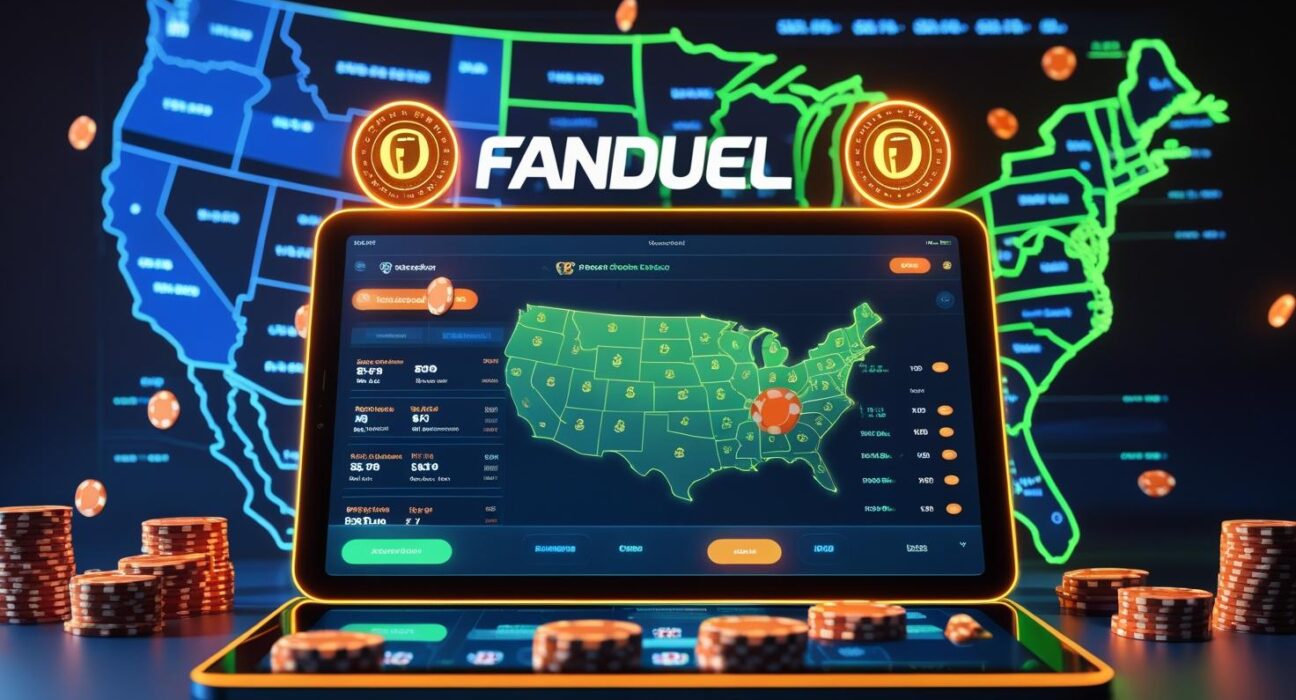When the European gaming titan Flutter Entertainment first dipped its toes into the U.S. betting market, few could have predicted that within a few years, it would be running point on one of America’s biggest sportsbook brands.
The strategic partnership — and now near-complete ownership — of FanDuel by Flutter has become one of the defining power moves in the modern gambling industry. It’s not just a merger. It’s a blueprint for cross-market dominance, brand fusion, and regulatory navigation.
So, what’s the real story behind this billion-dollar marriage? Let’s break it down.
📜 A Quick Recap: From DFS to DFS+
FanDuel began life in 2009 as a daily fantasy sports (DFS) innovator, competing neck-and-neck with DraftKings. It built a loyal U.S. audience before the PASPA repeal in 2018, which opened the floodgates to legal sports betting.
Flutter, then known as Paddy Power Betfair, saw the writing on the wall.
In May 2018, it acquired a majority stake in FanDuel, merging its U.S. operations with the upstart fantasy company. The idea? Combine Flutter’s tech, risk management, and sportsbook DNA with FanDuel’s brand recognition and user base.
That move turned out to be prescient. Today, FanDuel holds the top spot in U.S. sports betting market share, consistently beating out DraftKings, BetMGM, and Caesars.
🧩 Why the Partnership Works: Flutter’s Strategic Assets
The Flutter–FanDuel model is a masterclass in symbiotic scaling. Here’s why it’s worked so well:
1. Tech Stack Superiority
Flutter brought with it a best-in-class global sportsbook engine, honed across European markets. It provided FanDuel with:
- Robust pricing and trading algorithms
- Real-time risk management
- Seamless multi-state infrastructure
- Scalable app and platform development
FanDuel got a backend facelift that could handle the volume and volatility of American betting appetites.
2. Brand Autonomy with Global Muscle
Unlike other M&A stories, Flutter didn’t try to “Paddy Power-ify” FanDuel. Instead, it let the U.S. brand retain its own voice and personality, while injecting it with:
- Capital firepower
- Strategic marketing support
- Operational excellence
FanDuel remained culturally American — witty, fast-moving, and gamified — while leveraging European-grade strategy.
3. Omnichannel Leverage
Flutter brought multi-vertical experience to the table — including:
- Retail betting from brands like Paddy Power and Betfair
- Online casino strategy from PokerStars and Sky Betting & Gaming
- Horse racing markets via TVG and Sportsbet in Australia
This allowed FanDuel to expand beyond sports betting into online casino and horse racing with more confidence than competitors still focused on single-vertical plays.
💰 The Money Trail: Flutter’s Full Buyout
By 2021, Flutter had increased its stake in FanDuel to 95%, reportedly valuing the company at over $11 billion. A long-running legal spat with early FanDuel founders and seed investors was eventually resolved, clearing the runway for Flutter to tighten its grip.
Now, Flutter essentially owns FanDuel outright — and has been actively considering spinning it off via a U.S. IPO, potentially unlocking massive shareholder value.
Why? Because a standalone FanDuel listing could:
- Create a pure-play U.S. sportsbook equity story
- Unlock capital for further North American expansion
- Let investors choose between Flutter’s global holdings and a U.S.-centric model
An IPO is still in play for 2025 or early 2026, depending on market conditions.
🏈 Product Differentiation: More Than Just Odds
FanDuel, with Flutter’s backing, has distinguished itself with:
- Same Game Parlays (SGPs): FanDuel pioneered this format, which now accounts for a massive % of bets
- Integrated media partnerships: Including deals with the NBA, NFL, and content studios
- Fantasy-to-Sportsbook conversion tools — turning DFS users into sportsbook customers
- Casino gamification with cross-promotions, wallet sharing, and exclusive content
This ecosystem approach — fantasy + betting + casino + media — is the golden goose Flutter is now scaling globally.
🌍 Global Implications: FanDuel as the U.S. Flagship
Make no mistake: FanDuel is Flutter’s U.S. crown jewel. While the group owns big brands in the UK, Ireland, Australia, and Spain, the U.S. market’s projected $40B potential makes FanDuel its highest-growth asset.
Flutter is now leveraging FanDuel’s model to influence:
- New launches in Brazil, India, and Africa
- Multi-vertical strategy testing in Ontario and New Jersey
- Cross-brand data integration between PokerStars, Sisal, and FanDuel
In effect, FanDuel is no longer just a sportsbook. It’s a blueprint for how Flutter can go global 2.0 — especially in jurisdictions warming to regulation.
⚖️ The Regulatory Balancing Act
While the partnership is commercially successful, Flutter/FanDuel walks a tightrope:
- Navigating state-by-state licensing in the U.S.
- Managing anti-competition scrutiny over market share
- Dealing with advertising restrictions and calls for responsible gambling reform
Flutter’s approach has been to preemptively cooperate — pushing responsible gaming features, media education campaigns, and internal compliance systems designed to withstand regulatory audits.
🔮 What’s Next?
The next phase of the Flutter-FanDuel saga likely includes:
- A FanDuel IPO, giving investors direct exposure to U.S. gambling
- Further casino and iGaming expansion into new regulated states
- Media and content partnerships to fend off threats from ESPN BET, Fanatics, and Barstool 2.0
- Exploration of real-money esports betting and skill-based gaming layers
And possibly… a global rebrand. FanDuel may start appearing in non-U.S. markets soon, signaling Flutter’s belief that it’s the future of the group’s brand architecture.
🧨 Final Take: This Is the Merger Everyone Else Is Chasing
In an industry filled with failed integrations and rushed M&As, Flutter and FanDuel are the exception.
This was a strategic partnership executed with vision, patience, and ruthless precision.
It gave Flutter a U.S. power base. It gave FanDuel the tech and bankroll to dominate.
And now, it’s reshaping the global iGaming landscape — one state at a time.











